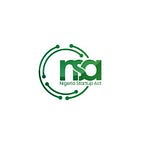Eligibility requirements for startups under the Nigeria Startup Act
The Nigeria Startup Act which received presidential assent on the 19th of October, 2022 has brought in a lot of renewed hope for the country’s tech ecosystem with the expectation that laws and regulations for startups will be clear, planned and work for the tech ecosystem.
The Nigeria Startup Act (NSA) promises a lot of benefits for startups under its jurisdiction. Many of which have been stated in past articles. The excitement surrounding the act, therefore, is not only welcome but expected.
However, not all startups may benefit from the act. This makes sense because the act is made for “Nigerian startups” and so should be serving only startups that fit that description. With this in view the act has laid out the following as criteria for a company to be classified as a startup under the NSA:
- It is registered as a limited liability company under the Companies and Allied Matters Act 2020 and has been in existence for a period of not more than 10 years from the date of incorporation.
- Its objects are innovation, development, production, improvement, and commercialisation of a digital technology innovative product or process.
- It is a holder or repository of a product or process of digital technology or the owner or author of registered software.
- It has at least 51% of its shares held by one or more Nigerians.
Are these too rigid? Not at all, in fact, other startup bills/acts such as Kenya’s have similar requirements for startups looking to be beneficiaries of the act.
All of these criteria are geared towards ensuring that local content is promoted and that Nigerians benefit first from an act that is clearly made for Nigerians. In addition, companies registered under Nigerian law will be subject to the country’s values and taxation system. This will create a ripple effect, providing the government with more funds to inject into more sectors and foster economic growth.
The second criterion is related to the core definition of a startup. Without innovation and room for scalability, a startup is just like any other business. This act was tailored for startups in order to help propel them to global domination in as little time as possible. This is something SMEs and other businesses wouldn’t be able to do. The NSA is therefore right to focus on startups only, fostering rapid economic growth.
These two (easily surmountable) concerns lie at the core of the criteria for startups enjoying the advantages of the startup act. With the many benefits of being recognized as a startup under this act, we believe it is more than a fair deal.
To learn more about the NSA, you can start here.
Do you want to keep up with all the news on the NSA? Sign up for our newsletter.
Also, subscribe to our YouTube channel; we promise to share very insightful and educational videos with you there.
Visit our website and follow us on Instagram, Facebook, LinkedIn, and Twitter to keep up with the project and learn any new information as soon as it comes up. You can email hello@startupbill.ng for partnership and inquiries
